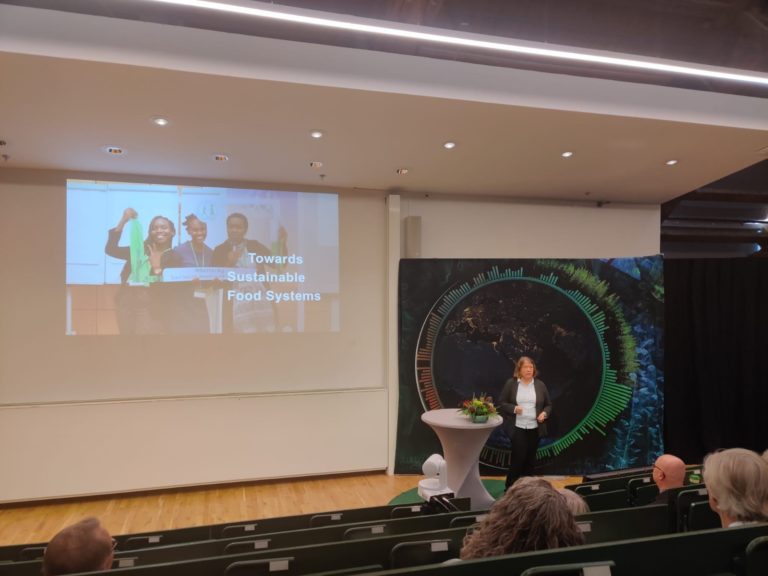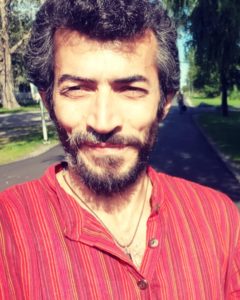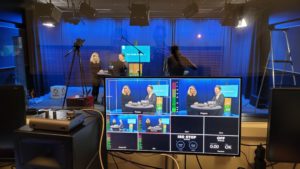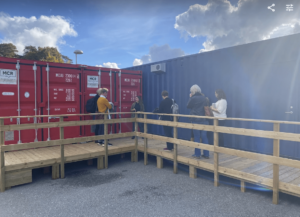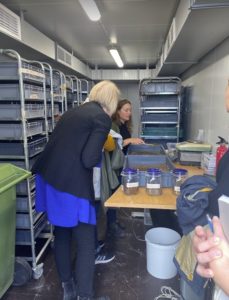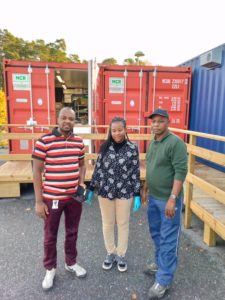
Within our VR finance project Insect farming for feed production and organic waste management in Benin we now welcome three guests from Benin that will stay with us for a month to learn and exchange knowledge on the BSF technology: Daniel Dzepe, Carline Santos and Claude Gande (seen in front of our BSF containers at Ultuna campus). Read their personal presentations below.
Hi! My Name is Daniel DZEPE, I am a PhD holder working with the International Institute of Tropical Agriculture (IITA), Benin on Black Soldier Fly (BSF). Being at the Department of Energy and Technology of SLU for one month internship with Dr Cecilia Laland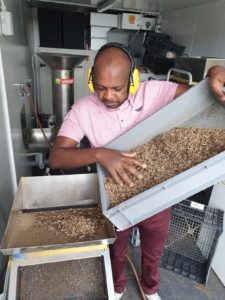 er’s team means a lot to me since I have been reading her interesting publications since my Masters. I will be working on BSF composting technology with Viktoria and the other technicians in the lab. Although I already have a good experience of BSF technology, especially regarding the rearing and bioconversion processes, I am so confident that my time in this team will improve my skills and knowledge and will probably allow me to get more opportunities in this field in the future. I will stay until the end of the month, and I am already ready to enjoy my stay with my new colleagues.
er’s team means a lot to me since I have been reading her interesting publications since my Masters. I will be working on BSF composting technology with Viktoria and the other technicians in the lab. Although I already have a good experience of BSF technology, especially regarding the rearing and bioconversion processes, I am so confident that my time in this team will improve my skills and knowledge and will probably allow me to get more opportunities in this field in the future. I will stay until the end of the month, and I am already ready to enjoy my stay with my new colleagues.
Hello. My name is Carline Santos, i’am researcher in Molecular genetics and plant protection from International Institue of Tropical Agriculture (IITA), Benin (West Africa). My work focus on « impact of Black Soldier Fly (BSF) Frass on vegetable crops production and pest management ».
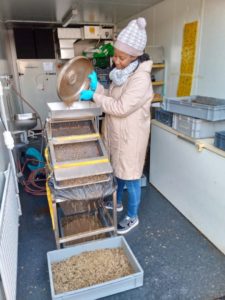
I came at SLU at the Department of Energy and Technology for one month internship to learn more about Black Soldier Fly (BSF) technologies for organic waste management. I’m very happy to join Dr Cecilia Lalander’s team and i want to thank SLU and everyone for this training opportunity. I would like to thank specifically Dr Cecilia Lalander, Dr Laura Riggi and Viktoria Wiklicky for your assistance since we are arrived.
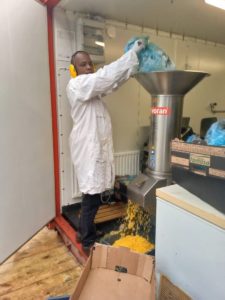 Hello. I’m Claude Mathias GANDE, research technician from International Institue of Tropical Agriculture (IITA), Benin.
Hello. I’m Claude Mathias GANDE, research technician from International Institue of Tropical Agriculture (IITA), Benin.
I’m very happy to join Dr Cecilia Lalander’s team to improve my knowledge on Black Soldier Fly (BSF) technologies.

